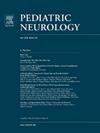社会健康决定因素对1300例癫痫患儿生活质量的影响
IF 2.1
3区 医学
Q2 CLINICAL NEUROLOGY
引用次数: 0
摘要
背景癫痫患儿的健康相关生活质量(HRQoL)是衡量癫痫对身心健康影响的一项指标。虽然癫痫的特征、治疗和发育/学习问题影响HRQoL,但关于社会、非疾病相关因素如何发挥作用的数据较少。本回顾性观察性研究探讨了社会健康决定因素(SDOH)与癫痫患儿HRQoL的关系。方法收集1311例1年以上癫痫患儿的儿科生活质量量表癫痫模块(PedsQLEp)评分。临床特征和SDOH拟合多变量线性回归模型以确定相关性。结果PedsQLEp的认知域和执行域的中位分最低,分别为50分和54分。两者都与发展/学习问题有最大的关联(认知,β =−32;95%可信区间[CI],−35至−30;执行β =−19;95% CI,−22至−16)。影响与癫痫发作负担和抗癫痫药物(ASM)副作用密切相关。情绪和睡眠与ASM副作用最相关。SDOH,包括公共保险和增加的社会需求,与认知、执行、影响和情绪领域较低的HRQoL相关,但与其他因素相比程度较低。结论在癫痫患儿中,SDOH与HRQoL相关,但程度低于癫痫相关因素。较高的癫痫发作负担、频繁的ASM副作用和发育/学习问题与较低的HRQoL相关性最大。本研究强调了改善HRQoL的干预领域,并指出HRQoL可能不是评估干预对SDOH影响的有用结果指标。本文章由计算机程序翻译,如有差异,请以英文原文为准。
The Impact of Social Determinants of Health on Quality of Life in a Cohort of 1300 Children With Epilepsy
Background
Health-related quality of life (HRQoL) in children with epilepsy is a measure of the impact of epilepsy on mental and physical health. Although epilepsy features, treatments, and developmental/learning issues impact HRQoL, less data exist on how social, non–disease-related factors play a role. This retrospective observational study examines the association of social determinants of health (SDOH) with HRQoL in children with epilepsy.
Methods
Pediatric Quality of Life Inventory Epilepsy Module (PedsQLEp) scores were collected from 1311 children with epilepsy over one-year. Clinical characteristics and SDOH were fit to multivariable linear regression models to identify associations.
Results
Cognition and Executive domains of the PedsQLEp had the lowest median scores of 50 and 54, respectively. Both had the largest association with developmental/learning issues (Cognition, β = −32; 95% confidence interval [CI], −35 to −30; Executive β = −19; 95% CI, −22 to −16). Impact had a strong association with seizure burden and antiseizure medication (ASM) side effects. Mood and Sleep were most associated with ASM side effects. SDOH, including public insurance and increased social needs, were associated with lower HRQoL for Cognition, Executive, Impact, and Mood domains but to a lesser degree than other factors.
Conclusions
In children with epilepsy, SDOH were associated with HRQoL, but to a lesser degree than epilepsy-related factors. Higher seizure burden, frequent ASM side effects, and developmental/learning issues had the largest association with lower HRQoL. This study highlights areas for intervention to improve HRQoL and indicates that HRQoL may not be a useful outcome measure to assess the impact of an intervention on SDOH.
求助全文
通过发布文献求助,成功后即可免费获取论文全文。
去求助
来源期刊

Pediatric neurology
医学-临床神经学
CiteScore
4.80
自引率
2.60%
发文量
176
审稿时长
78 days
期刊介绍:
Pediatric Neurology publishes timely peer-reviewed clinical and research articles covering all aspects of the developing nervous system.
Pediatric Neurology features up-to-the-minute publication of the latest advances in the diagnosis, management, and treatment of pediatric neurologic disorders. The journal''s editor, E. Steve Roach, in conjunction with the team of Associate Editors, heads an internationally recognized editorial board, ensuring the most authoritative and extensive coverage of the field. Among the topics covered are: epilepsy, mitochondrial diseases, congenital malformations, chromosomopathies, peripheral neuropathies, perinatal and childhood stroke, cerebral palsy, as well as other diseases affecting the developing nervous system.
 求助内容:
求助内容: 应助结果提醒方式:
应助结果提醒方式:


